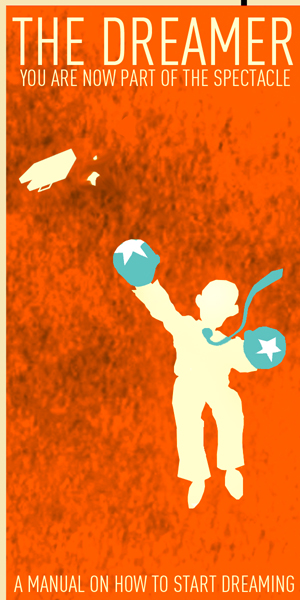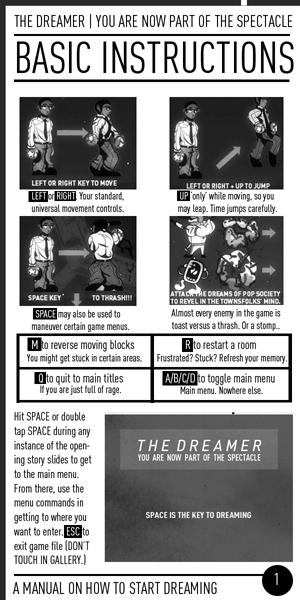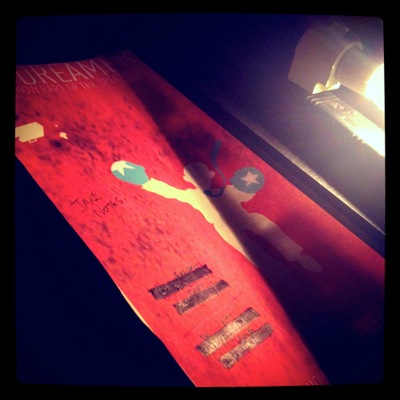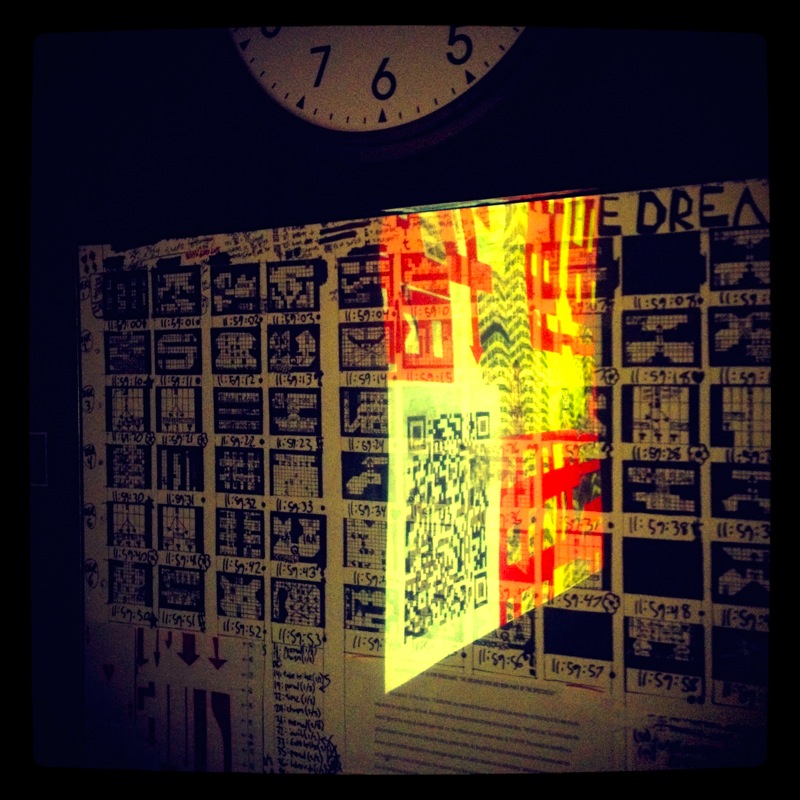This introductory paragraph is a preface to the meta-narrative that follows. The following manuscript shall assume the form of critical analysis unto myself, an artist, but through a lens that merges the fantasy into the intellectual. From the second paragraph down, I subtract the identity of my being, re-label my possessions and birth name ethically, and observe who I am from the third-person perspective. This temporal self is transposed into a narrative where in three academic authors the extended-self fancies are engaged in a critique of his beloved artwork. The definition of meta-narrative in this scheme alludes to story created by the mind while it lives in the quintessential narrative that is reality. More concisely, this manuscript is about critical, academic analysis while the artist in reality endures a bona fide critical evaluation. The Verbal Autopsy of Brent Solnyer is a hypothesis designed for recognizing the strongest attributes of one self that existing education can only go so far in endeavoring. I believe the framework of using dreams to pursue a means end emulates, conveniently, a unified ideology of the three authors intervening. Whether these composers of words emerge from death or the present, they serve the singular purpose of lecturing our protagonist with knowledge directly from the human source.
Brent Solnyer clenches in his ghostly, fuzzy palm an ashy latte. As he bears witness to enough glacierious foam parting, a reflection of the cafe window shows progression into night. In a late afternoon hour, as echoes of society signal in array, Brent's mind becomes substantially detached from all senses besides touch. The latte is that mediocre. This feeling of anticipated bitterness carves a significant shadow below alert eyes. Digressing, bad coffee was not the paramount thing fermenting Solnyer's psyche this hour. In Brent's other pale palm, he manages his way through an iTalk 4S. For the indefinite instance in a single hour, his calendar application discloses an IMPORTANT MEETING AT 5:30 to go to. The moody Brent did not bother authoring the meeting's detail space. He knows what details await and felt doing so to be corruptive of the chance event's holiness.
More significantly, this is one of many instances where Mr. Brent Solnyer has interpreted the simulation of his own existence. This belief ferments in the crevice of his mind and devours its ways to sensory knowledge. In only paltry doses, he can rebel against his subversion into commodity by failing to 'fill in' a few steps. Ultimately, the act is hollow and Kamikaze. With the elementary act of holding a latte and fancy phone in parallel palms, this is the facile, emotional portraiture of Brent Solnyer. He is an animus of disassociation from all immediate surroundings, yet observant enough to rationalize the commodity happening about with tangibility. Besides the sense of touch, the sights are unfocused lights, the taste is bitter, the sounds are filtered, and the smell is of death. Thanks to simulation omnipresent, there is no originated truth in society anymore. Brent simply believes this Earth around him is buried in its own spectacle and has activated, if not already reached, the end of potential for ingenuity. Since all creation is a solid success and victoriously committed to memory, these commodified objects mark the end of progressive attitudes and make mausoleums out of civilian architecture. The voices Brent hears in the cafe are a reverberation of revolution's end. He is an artist. He fears with a successful object, he is at once dead.
That was the emotional portraiture of Brent Solnyer. The physical one : He is a Masters of Fine Art candidate at the University of West Oasis, no more than ten paces from the cafe. West Oasis is a miniscule desert city where its main economy takes the form of subversive casinos. These casinos shine everywhere. Brent's meeting in fifteen minutes is with three custom-issued, University holograms designed to enhance the learning experience of all post-graduate students. Schematic of the movement is underscored well in the Spectacle Allocation for Resonating Scholastics (SARS) Act of 2011. Simply put, to rationalize the rising costs of tuition across the nation and find an economically viable method of enhancing knowledge, desperate measures were taken. The regeneration process of transfusing DNA into the shape of holograms was conducted by, the local to West Oasis, Area 51. Naturally, the state of such a secluded military base was the first to employ the resources and West Oasis had a substantial bid. These holograms represent the three heroic authors of Brent's study, and in theory, the neapolitian divisions of his animus. The men are two (dead) French philosophers in Guy Debord and Jean Baudrillard, with living American activist and mass media writer Stephen Duncombe playing wingman. A perk of the SARS Act is that scientists can hologram dead intellectuals past their time. Even more absurd, holograms can be rendered of living intellectuals if they are too busy with their own schedule to attend distant meetings. It is a painful, probing process to undergo for living scholars, but such is the essence of progressivism. The act for replicating the dead into this ghostly form only confirms to Brent the focus of his psyche. Which is, we truly have come into the repetition of all originated nature. The dead themselves are encapsulated into industrialization and society no alternative but to be consumers of their memory. Brent was nonetheless ecstatic to meet his scholarly emblems, yet not the idea of their replication.
This chance visit was contracted following the accomplishment of Brent's solo art exhibit at the WOU's own Project OASIS gallery. This exhibition was entitled Evening Rises, Trapped in Dreams. The centerpiece of this secluded exhibition was a computer game entitled The Sleeper : Participation in the Spectacle which dealt with themes precisely related to intellect merging with fantasy in light of societal commodification. When word reached the public, via independent newspaper article, WOU issued immediately the three most compatible holograms for Brent's protocol critical analysis. The top brass of the department put it in writing and made it official as a supreme bookmark to the end of Brent's first, quite luminous, first semester. In belief, the visit is an experimental exam. The battle is between theories a student learns versus the unprinted source which authored it originally.
Night fell illuminously over West Oasis as Brent decided to pay the check. He walked an even line to his solo exhibition still on display, as he was meeting his three observers in the heart of it. A bronze key turns, reflecting the premature evening, and the door creaks leisurely. He meditated on thoughts from the cafe as he stepped into a black hole. This black hole was his exhibition space. All the walls were painted black, excluding a pale box of light that was a strategic projection of The Sleeper onto white. "All of the information we cherish and recite was taught to us by the current day deceased", Brent whispers with no one around. He felt suddenly disfigured and polarized by what was to occur. Brent commonly addressed matters in an adolescent shade of black versus white. "If I'm going to be critically abused by these gentlemen, that's going to hurt. Yet, if I adorn praise, it means I have solid means towards success, and thus, the formula for replication. Is living death achieved then? If this is a hit, I won't know much else to do with myself." It was a long, arduous wait for the holographic scholars. Brent bathed in the red, giant light of his computer game's projection. He felt devoured by commodity as its artifice engrossed his body.
"All I ask of the West Oasis taxi service is why they insist on replicating the second phase in Simulacrum theory?" asks the pale-blue hologram of Jean Baudrillard in a claustrophobic space. "It is staggering in its encapsulation to not think we could have red taxis, blue taxis, or even a sign on top besides the stripper!" Baudrillard lights a hologram cigarette, which is strangely legal inside of all West Oasis public transportation. The thought proved distasteful, as the taxi was in gridlock containing all three scholars for Brent's critical analysis. The distance was two miles ahead with 5:25 reading on a deliciously analog clock interface. Cautiously light conversation ensues, as the hologram of Guy Debord interjects from in the right side of the back seat. "The whole solidarity of the spectacle is a sham in itself. Yellow taxis are just a marketable ploy. If I understand you right though, Jean, the deconstruction of the taxi barter in West Oasis would lead to revolution and thus a contemporary order reborn for the better of taxi passengers everywhere?" Baudrillard ignites Debord's hologram cigarette with his own cigarettes flare. "Not what I'm saying at all. History is not cyclical. Its been burying itself in the same code since urbanization and arguably before. If one uniform taxi service dies, then another will just replace it. I'm saying to embrace the sorcerer's lie because it will never fade. Distressing the code will cause chaos and not revolution."
Stephen Duncombe feels out of place in this conversation, scrunched on the left side of the back, as his personality is more thoughtful of a tangible reality. Duncombe, more political, secretly enjoys making use of commodity in the everyman's favor. In light of it, he changes the subject for Brent's sake. "Any connection between this taxi business and our boy in the gallery down there? We could lead in with a good joke to save face for being late." Guy Debord squeezes from Baudrillard taking up all the backseat space. "I've heard about this American computer game that the boy has composed. I read the local newsletter in preparation. From what I understand, it seems to embrace intellect and politics in tandem with sensory overload. He does both of the elements at once." Duncombe is relieved he actually garnered a response from his colleague, following it up with another query. "Would you think that might be an agenda to grabbing a crowd more? Appealing to the senses, but also to an academic foundation?" Debord puts out his cigarette. "I'm torn, so I'll have to witness the artwork for myself I suppose. Like the taxi, his game is replicable and can ultimately serve the purpose of capital or some autonomous rule. This can lead to the declination of society and fetishism for the devil. Yet, I know more than anyone that rebellion is a catalyst for revolution and changing of the guard. It may very well be an ironic representation of the society of the spectacle from what I hear of it. I think, in a special way, that this technology he is presenting is Marx. At once framed, but available to the globe. The game-" Debord is stopped when he sees Duncombe checking the time on his hologram smartphone. "Its 5:35", Debord promptly throws out. Baudrillard takes note of Debord's rare asphyxiation with technology. "Hypocrite." "Shut up," Debord whips back. The ride was an insult bistro until the three men were twenty minutes late for the exhibition visit.
Three panting, holographic representations of adult men sprint at the exhibition door. Their translucent blazers fluttered against one another as simultaneous expressions of men who see little physical exercise grimace. Subsequently, the men gather like three, shimmering wise men before a nervous Brent Solnyer amidst the solitude of his exhibition space. The artificial of holographic flashes react blindingly against the tangerine of The Sleeper's projection in darkness. Visualization of the scenery might allude to a magnanimous homage of science fiction films from Brent's past and Baudrillard's present. For a good while, nothing happened between the four of them. There was a surreal, thirty-second silence before anything occurred or something was said. The scholars had immediately shifted into their professional beings, which become condescending representations of their own selves. Luckily for Brent, he spoke the language of representations and did not take long to decipher the gesture. He leapt to the panicky conclusion that he should demonstrate his art game for the men. It did not take long for Brent to wire into virtual reality-
S T Y L I Z E D G A M E P L A Y V I G N E T T E
The website logo of Brent Solyner's address soared across the screen in bold, but simple fashion. Then came the opening slides to the story. A frustrated politician is against the will of the audience who seems to be buried in what Guy Debord would call a 'spectacle of society'. This scenario is where the masses are governed by a capitalist, consummation of what is offered versus a democratic activism. This emotion has volcanically erupted from years of build at a city hall meeting where both a school debt crisis exists and the audience is too rabid to assist in the issues. The decision all lies on the shoulder of one politician and he needs to make a decision in one minute before midnight falls tangibly and metaphorically. What occurs in actual game play is the politician's avatar battling his way through sixty levels of sensory overload. The politician, now equipped with boxing gloves of American justice, now destroys figments of the representative spectacles in society in order to discover a solution, an answer, and a revolution within. In order to combat the American distress for the American dream, the politician has a dream to find the answer. In between luscious renderings of Vito Acconcian dreamscape that involve Capitalism stages, rigged quiz levels, and New Wave style boss fights, the visuals and concept are an absurd parody of America.
Whatever emotional anxiety existed for Brent had ceased with the first syllables out of someone's mouth. Those syllables were from Guy Debord, and more recognizably from paragraph number twenty-one of his infamous Society of the Spectacle. "As long as necessity is socially dreamed, dreaming will remain a social necessity. The spectacle is the bad dream of a modern society in chains and ultimately expresses nothing more than its wish for sleep. The spectacle is the guardian of that sleep."[1] Brent performs the rare feat of looking into another person's eyes, possibly supplemented by the fact the Guy Debord he sees is not actually real. "So would you agree, Mr. Debord… that if we are to wake up from this nightmare, then society would become less a degradation of itself? What might happen when we are instructed not to dream as much?" The conversation ensues beyond quotable language. Debord himself affirms that revolution occurs by means of cyclical history after enough or all of society wakes up from its representative dreaming. Debord cites the mutiny of such totalitarian rulers as Stalin or Mussolini. He then recalls the light conversation he had minutes ago in the gridlocked, yellow taxi. Debord beckons to question, "do you think after finishing this layered game that there is a call for revolution and a literal answer for the townspeople's issues?" Stephen Duncombe with a sly smirk adds in. "I'd like to add a question to the matter. Is the revolution positive if it actually exists? I believe in political optimism by means of actual activism and not big talk." In this moment, Solnyer affirms to himself that his embodiment as an artist and his artwork alone is not dead. This was a difficult question to answer, as a first semester Masters of Fine Art candidate, and he had to submit to answering the question the only way he knew how. Brent answered with the truth. "There is no call for a particular revolution at the ending of the game. I only meditate further on the complexities of existence and how dreaming still might be the only progression to success. As for an actual answer, I only allude to austerity, but in my contextual framing I only use it to support the idea of dreaming even more. I believe without political benefits, the imagination takes over."
Every person in the room seems to be scratching their heads at this point. However, all seem to be intent on getting to the bottom of the matter. Debord throws out a positive note before dissecting again the conceptually resurrected Brent Solnyer. "Don't get me wrong, American consumer. The game looks splendid and it brings into question these ideas which are so long dead, as far as I can tell, in society." Debord admires the strife, even in sensory overload, to remain true to a direct concept. This may be supplemented by an outright homage to Debordian films where in-game, boss fights are just black screens with convolutedly humorous battles against picket signs. "I usually left screens black to allow the audience to meditate on their own fetishism for containment, but I suppose the visual is absolute shit in a computer game." Jean Baudrillard throws his cards into the hat. "Society is so layered as it is, too! Forget spectacles! It’s a miracle someone even pays mind to this kind of sacramental encapsulation that has existed since urbanization! With the world so buried up its own ass in capitalistic rule, we need certain kinds of activism to reach the minds of the willfully naive! Even if it does not actually solve anything. To call attention to the matter while industrialized in endless code alone is a wonderful initiative." As Brent suspected, he was about to bombarded by compliments for the visualization of the game, which he always pays particular attention to. Duncombe took special fancy to the artwork, which underscored his own theses on how the political left needs to escape bureaucracy and appeal again to the masses. He taps the game's instruction manual that contains a silhouette image of the politician falling into endless sky while abandoning a suitcase.
Duncombe scholastically advances on Brent on. He confers into debate technical decisions for the cerebral computer game. Duncombe quotes one of his own passages. "What does this mean for progressives? Fashioning a politics that leans from and draws upon the popular attraction of video games means considering more than just end goals." [2] There continues to be elaboration that open world gaming alludes to how issues in America need to be solved not by direct conclusion, but by open world abstraction allowing democracy to breathe in participatory effort. It is this moment Duncombe puts forth a shocker to Brent. "So why a platforming game versus an open world sandbox game?" It was a question worth ten thousand dollars, and again, Brent could not reply with any other answer than concrete fact. "I chose platforming because the point I'm making would be more narrow, I think open availability in video games is overrated and detracts from a linear message, and it matched up perfectly with my visual capabilities at the time." Duncombe then reaffirms what Debord suspected earlier. "Yet, your ultimate point is a meditation on what could be and not an actual answer. While calling to attention the matter is noble in itself, I think a sandbox-style exploration would better suit your effort for open world question-asking." The penny dropped for young Brent Solnyer there, and he accepted the probability he would need to change further in his art career. It was a bittersweet realization for Brent. On the bad hand, yet somehow optimistic realm, this epiphany calls for Brent to recalibrate his arsenal of game making techniques for the better. This is even after he did so in attentive manner during his first semester at WOU. Yet on the absolute positive side, it means he is consistently progressing as an artist and not dead by any means of success or otherwise in his perusing for aesthetic conclusiveness. He came of age. Information is not dead. Information exists as time does itself. Brent accepted Duncombe's criticism.
Jean Baudrillard emphasizes his agreement with the matter, but with his own nomenclature. "There is a strength in referencing the certain Simulcara of mass media with media itself. Yet, in order to tap into the ecstasy that society seems to be consumed by, I should think it would be at its strongest by using a medium just as wide and expansive as that. Even though the technology you're working with is compatible with society at infinite speed, you can go even further and I encourage it. An online game is available to all, but is only participatory by one person at a time. No one person participates in the simulation alone. We're all referenced and immortalized together." Baudrillard realizes he's out of holographic cigarettes and it is almost time to go. "I find the absolute strength in challenging what you are challenging. There is no mistake about that, son. Yet, for the remainder of your degree, and I see this potential in you, you can go much, much deeper. I think of you as a post-modernist in the most acute aura working with tools you possess. The technology itself you throw on the world's canvas speaks volumes. All you need to do is put your material out there with as little layers as possible and the coded masses will understand. This is coming from a guy too who all but worships the idea of society buried in code, kid." Jean Baudrillard was essentially entrusting Brent Solnyer to hammer against the wall of digital code with encompasses history and all, in spite of his theoretical warning not too. "I think, kid, we've reached a point where there's a fifth step after simulation. That step is deconstruction."
Brent Solnyer understood how his exhibition was a success, but it was far from the naive conclusion of the deceased object he feared. It was successful, but at once, tangible until infinity in tandem with a constantly rebuilding world of reprints, commodification, and Simulcara. Brent, after all, was interacting with holograms. These representations are artificial but can eventually take shape of truth. "Mr. Baudrillard?" Brent raises like his newfound epiphany. "In closing, what happens when I do find that type of mass media which informs the mass media I strive for? Do I become the useless artist afterward, having been successful and marked my territory for life?" All three men laugh with an old jackal's esthetic. Baudrillard, being the closet elitist he is, ends on a self-quote. "For ethnology to live, its object must die. But the latter revenges itself by dying for having been discovered, and defies by its death the science that wants to take hold of it." [3] The whole act of an artist reacting to critical analysis, and art as a whole, made more sense to Brent. He premeditated the answer all along. Its confirmation only took a fake representation of the deceased. "Look at us, kid. We're dead, we're being resurrected by some kind of fetishism for academics, but we aren’t complaining about it. Being dead has its advantages. You leave a legacy. To be blunt, you're history." All three holograms stumble out of the exhibition space, handkerchief's to sky blue sweat. Duncombe scratches the artifice of his head. "But I'm still alive. My living self teaches in a-" "Shut up", Baudrillard interjects.
Works Cited
[1] Debord, Guy. Society of the Spectacle. Canberra, Australia. Treason Press. 2002. Print.
[2] Duncombe, Stephen. Dream : Reimagining Progressive Politics in an Age of Fantasy. New York City, NY. New Press. 2007. Print.
[3] Baudrillard, Jean. Simulations. Los Angeles, CA. Semiotext(e). 1983. Print.







No comments:
Post a Comment